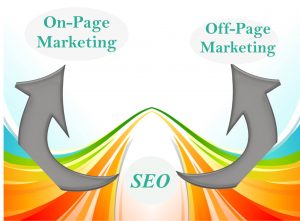Search Engine Optimization
- Home
- Search Engine Optimization
Search Engine Optimization
Jun 28 2018Search Engine Optimization (SEO)
Generally the earlier or Top ranked on the search results page and more recurrently a website appears in the search results list. The m ore visitors it will receive from the search engine’s users. The Search Engine Optimization – SEO is the key factor responsible for this occurrence. Therefore, SEO can be defined as the process of affecting the online visibility of a website or a web page in a web search engine’s owing results and can be termed as “earned”, “unprocessed”, or “innate” results.
ore visitors it will receive from the search engine’s users. The Search Engine Optimization – SEO is the key factor responsible for this occurrence. Therefore, SEO can be defined as the process of affecting the online visibility of a website or a web page in a web search engine’s owing results and can be termed as “earned”, “unprocessed”, or “innate” results.
As such, the more frequent a website appears on search page the more visitors it attracts. And thus making it easier to convert them as customers. The objective of SEO may aim at variety of searches. Which comprises image search, video search, academic search, news search, and upright industry-specific search engines. SEO is different from ‘Local’ SEO because that focuses on optimizing a business’ online presence. So that whenever you enters a local search for a specific product or service its web pages will be displayed in front by search engines. On the other hand the SEO focuses on national or international searches more instead.
Search Engine Optimization – On-Page
On-page SEO is the process of optimizing particular web page so that it can be on the top of the search engine. And can earn more relevant traffic in search engines. In this process both the content and HTML source code of a page that can be optimized. Whereas in off-page SEO links and other external signals are modified and optimized. Hence, On page SEO takes directly all measures within the website. Which help it reach to higher position in search ranking by optimizing its content, meta description and even title tags as instance.
Search Engine Optimization – Off-page
 Off page SEO usually includes strategies which make a website improve its position in the search engine result page. In this process it is also very important to have significant inbound links from higher ranked external websites. The process is highly interdependent with On page search engine optimization.
Off page SEO usually includes strategies which make a website improve its position in the search engine result page. In this process it is also very important to have significant inbound links from higher ranked external websites. The process is highly interdependent with On page search engine optimization.